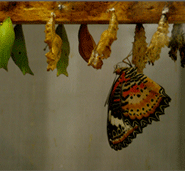Not you.
_ _ _
— Not the phone P, the uncle phone, she says.
— The uncle's phone, the uncles phoned, the uncle's phones, the uncle phoned, the uncles phone, the uncle phones, the uncle's phoned, the uncle'd phoned, he says, the phoney uncle but not the...
— I need your help with the uncle phone.
---
— Inspired by my uncle, she says. As a child, he'd ask me to do all sorts of things.
— Isn't he dead?
— To turn on the tube light, she says, or get a glass of gargle, a pack of cigarettes. But the phone irked me the most. He'd hold the receiver and intone: twofour, sixsix...I'd rotate the rotor and dial.
---
— To make it? He asks. Well, I don't know...
— To dial it, she says. To rotate the rotor. Or to hold it.
---
— No, no, he says, it's too simple. The Americans would say way too simple. Wayyy, he says.
— To use, she says. It's supposed to be.
---
— How does it matter if it works?
_ _ _
— Hello?
---
— Look, I can lie on it, he says lying
— Down, she says, get down.
---
— I can't hear the krrrr, P says.
— That's because it isn't connected, says R. Now?
---
— Hello? It works!
— How does it matter if it works? I asked. Hello.
— I could even call my uncle.
— The pretence of actuality, I said, an enactment of actuality. That's all. Isn't your uncle dead?
---
— Isn't your uncle dead? He asked.
— Yes, but...
— Then you can't call him. In any case, they won't let people touch the phone in the gallery you know. They won't allow people to call their uncles, he says. Or granduncles.
_ _ _
I can't write on this, I said to her, I can't I said. It is a problem I always have with objects – the thickness of the objects, I said, and the thinness of writing, he can't write, she said to him, he said he can't write, says, he said, without a d, he says he can't write, she said, says it's a problem he always has with objects – the thickness of the objects, he says, and the thinness of writing, the don't touch signs proclaiming the desire to touch in galleries, I said, and the drops of dal on writing, the don't touch signs proclaiming the desire to touch in galleries, he says, and the drops of lentils on writing, the aura of the object, I said, and the infinite reproducibility of writing, the aura of the object, he says, and the infinite reproducibility of writing, the functioning object, I said, the still word, the functioning object, he says, the still word, the object, I said, the word, the object, he says, and the word. I'll think about it, he says, and let us know.
Is this your number?
_ _ _
Arranged over four pages:
The first page: 8 + 1 lines
The next page: Entirely dialogue, with breaks – 4, 4, 2, 2, 1 lines.
The next page: Entirely dialogue, with breaks – 1, 2, 2, 4, 4 lines.
The last page: 10 + 1 lines.
The relatively complicated, denser ends and the longer, lighter middle.
The first end involving 2 participants – more circular, akin to the rotor; the second end involving the use of the receiver, hence 3 participants – the dialer (the 'she', presumably R), the talker (the 'he', presumably P) and the talked to (the 'I').
Equally, the beginning and the first 2 pages – before the phone is made (in a sense). The last two pages including the end – after the phone is made (in a sense).
The Uncle Phone needs 2 people to operate it instead of 1; the paragraph on the last page needs 3 people to move it along instead of 2.
Anirudh Karnick was born, grew up and came to. He studied at and realised he'd prefer not to. He divides his time between Room 48 and Room 45 of a hostel in Delhi.
Soren Pors was born in 1974 in Denmark and is based in Bangalore.
Aparna Rao was born in 1978 and is based in Bangalore.
Read this story in its intended format.









